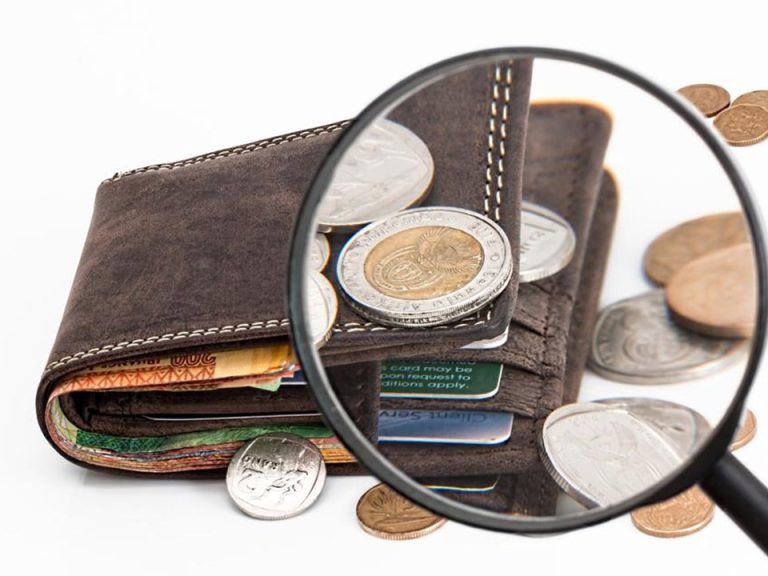One of the most common budget mistakes people make is not tracking their expenses. Without tracking your expenses, it is difficult to know where your money is going and if you are staying within your budget. Additionally, it is important to plan for unexpected expenses and to adjust your budget accordingly. Finally, it is important to avoid impulse purchases and to stick to your budget. Making these mistakes can lead to financial hardship and it is important to be aware of them in order to stay on top of your finances.
1. Not tracking your spending
Not tracking your spending is one of the most common budget mistakes people make. When you don’t track your spending, it’s easy to lose track of where your money is going and how much you’re spending. Without tracking your spending, it’s impossible to know if you’re staying within your budget or if you’re overspending. This can lead to debt and financial hardship. Tracking your spending also allows you to identify areas where you can save money and make adjustments to your budget. You can use a budgeting app or spreadsheet to track your spending and make sure you’re staying on track with your budget. This will help you stay within your budget and reach your financial goals.
2. Not having an emergency fund
Having an emergency fund is an essential part of any budget. An emergency fund is a savings account that is specifically set aside for unexpected expenses. It is important to have an emergency fund because it can help you avoid taking on debt when an unexpected expense arises. Without an emergency fund, you may have to rely on credit cards or loans to cover the cost of an emergency, which can put you in a difficult financial situation. It is recommended that you save at least three to six months of your living expenses in an emergency fund. This will ensure that you have enough money to cover any unexpected expenses that may arise. You should also make sure to keep your emergency fund in a separate account so that you are not tempted to use it for non-emergency expenses. Having an emergency fund can help you stay on top of your budget and avoid making costly mistakes.
3. Not setting financial goals
Setting financial goals is an important part of budgeting, as it helps you to stay focused and motivated. Without goals, it can be difficult to stay on track and make progress towards your financial goals. Without goals, it can be easy to get sidetracked and make budgeting mistakes. When setting financial goals, it is important to be realistic and set achievable goals. Start by setting short-term goals that are easy to achieve, such as saving a certain amount of money each month or reducing your spending in certain areas. Once you have achieved these goals, you can then set more ambitious goals such as paying off debt or saving for a down payment on a house. Setting financial goals will help you stay focused and motivated, and will help you make progress towards achieving your financial goals.
4. Not having a budget
Having a budget is essential for anyone who wants to be financially successful. Without a budget, it’s easy to overspend and end up in debt. A budget helps you to track your spending and make sure you’re not spending more than you can afford. It also helps you to plan for the future and save for important goals. Without a budget, it’s hard to know how much money you have available to spend and how much you should be saving. Creating a budget doesn’t have to be complicated. You can start by tracking your spending for a month and then creating a budget based on that information. You can also use budgeting apps or online tools to help you create a budget and track your spending. Having a budget is the first step to becoming financially successful and avoiding common budget mistakes.
5. Overspending on non-essential items
Overspending on non-essential items is one of the most common budget mistakes people make. It’s easy to get carried away when shopping for items that are not necessary for everyday life. People often feel like they need to buy the latest gadgets, clothes, or other items that they don’t actually need. This can quickly add up and blow a budget. To avoid this mistake, it’s important to be mindful of what you’re spending money on and to prioritize essential items over non-essential ones. Make a list of what you need and stick to it when shopping. It’s also important to set a budget for non-essential items and stick to it. This will help you avoid overspending and ensure that you’re staying within your budget.
6. Not taking advantage of tax deductions
Tax deductions are a great way to save money on your taxes. They can reduce your taxable income, which can result in a lower tax bill. Unfortunately, many people don’t take advantage of the deductions available to them. Common deductions that are often overlooked include deductions for student loan interest, medical expenses, and charitable donations. Taking advantage of these deductions can save you hundreds or even thousands of dollars each year. It’s important to keep track of your expenses throughout the year and to make sure you’re taking advantage of all the deductions available to you. Make sure to keep all your receipts and other documentation related to your deductions. This will make it easier to file your taxes and ensure that you’re taking advantage of all the deductions you’re eligible for. If you’re unsure of what deductions you qualify for, you can consult a tax professional or use a tax preparation software to help you maximize your deductions.
7. Not paying off credit card debt
Credit card debt is one of the most common budget mistakes people make. It can be easy to get into debt with credit cards, but it can be difficult to get out. When you don’t pay off your credit card debt, you are charged interest, which can quickly add up and make it difficult to pay off the balance. Additionally, if you don’t pay off your credit card debt, it can hurt your credit score, making it difficult to get loans or other forms of credit in the future. The best way to avoid credit card debt is to pay off your balance in full each month. If you can’t pay off the balance in full, try to pay as much as you can each month. Additionally, try to avoid using your credit card for unnecessary purchases. If you can stick to a budget and pay off your credit card debt, you can avoid the financial burden of interest and maintain a good credit score.
8. Not taking advantage of employer benefits
Not taking advantage of employer benefits is one of the most common budget mistakes that people make. Employers often provide benefits such as health insurance, retirement plans, and other perks that can help employees save money and make their lives easier. Unfortunately, many people don’t take advantage of these benefits, either because they don’t know about them or because they don’t think they’re worth the effort. However, taking advantage of employer benefits can be a great way to save money and make life easier. For example, health insurance can help cover the cost of medical expenses, while retirement plans can help you save for the future. Additionally, many employers offer discounts on products and services, which can help you save money on everyday purchases. Taking advantage of these benefits can help you save money and make your budget more manageable.
9. Not taking advantage of discounts
Not taking advantage of discounts is a common budget mistake that many people make. Discounts can be found in a variety of places, from online stores to local retailers. Taking advantage of these discounts can help you save money on everyday purchases and can help you stay within your budget. For example, if you shop online, you can often find coupon codes or promotional offers that can help you save money. Additionally, many stores offer loyalty programs that can provide you with discounts when you shop with them. Taking advantage of these discounts can help you save money on your purchases and can help you stay within your budget. Another way to take advantage of discounts is to look for sales and clearance items. Many stores offer discounts on items that are on sale or clearance. Shopping for these items can help you save money on items that you need or want. Additionally, many stores offer discounts for bulk purchases, so if you are buying multiple items, you can often save money by buying them in bulk. Taking advantage of these discounts can help you save money on your purchases and can help you stay within your budget.
10. Not saving for retirement
Saving for retirement is one of the most important budgeting mistakes you can make. It is never too early to start saving for retirement, and the sooner you start, the better off you will be. Retirement savings should be a priority in your budget, and you should make sure to set aside a portion of your income each month to put towards retirement. The amount you should save will depend on your age and income, but the general rule of thumb is to save at least 10-15% of your income each month. Retirement savings should be invested in a diversified portfolio of stocks, bonds, and other investments. Investing in a diversified portfolio will help to ensure that your retirement savings will grow over time and will be able to provide you with a steady stream of income when you retire. Additionally, you should consider taking advantage of employer-sponsored retirement plans, such as a 401(k) or IRA, which can provide additional tax benefits and help you save more for retirement.








